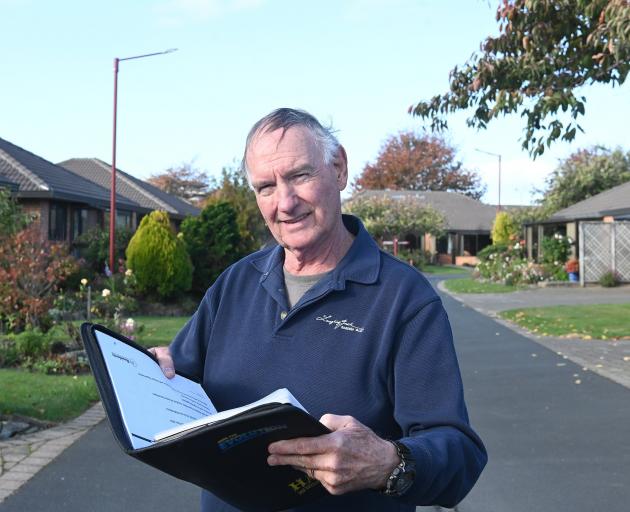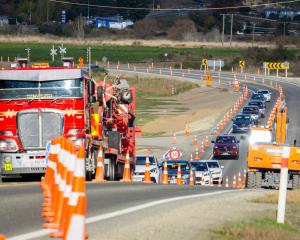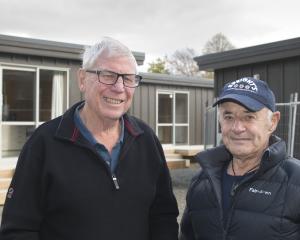
Association national president Brian Peat said with the review of the Retirement Villages Act 2003 continuing under the coalition agreement, people needed to know when concerns would be addressed.
"We just need that timeline commitment from the new coalition government to make sure that things will happen," the resident of Chatsford retirement village in Mosgiel said.
The review was started under the Labour government last year to address the issues of the booming sector two decades on from the Act’s introduction.
Mr Peat said issues faced by those in Otago were consistent with those in residential villages throughout the country.
A key problem was the lack of a set payback period for operators to return capital after residents moved on or died.
It was also a concern for an overwhelming 96% of the 11,270 people who contributed to the association’s residents submission document last year.
It was a response to the options-for-change discussion document published by the Ministry of Housing and Urban Development last August, before submissions closed in November.
Delays in payback could drag on for a long time, Mr Peat said.
"Sometimes longer than months. It can be a couple of years before the residents or the estate get the money paid back.
"That’s a very, very critical area that we want to have addressed," Mr Peat said.
"All we’re asking for is fairness, consumer protection and consistency."
The majority of those who contributed to the residents’ submission — 56% — thought the limit should be 28 days, followed by the 33% who favoured a three-month limit.
Operators wanted the limit to be as long as 12 months, an option less than 1% of residents favoured.
The association wanted it to be "a hell of a lot less".
It had even suggested operators could pay back a limited sum within an early limit, for estate purposes or funeral expenses, or some sort of capital gain payment.
"They’ve never ever wanted to think about it, but now they have to think about it."
Operators should have a sinking fund or a reserve fund they could tap into whenever people moved on or died, he said.
Another issue of concern was that in many retirement villages, residents seemed to be paying for repairs and maintenance despite not owning the unit or land.
Also flagged as a problem by Mr Peat is the continuation of weekly charges after exit, until a unit is licensed to someone else.
The retrospective aspect was also "critical", and he was not quite sure how the government would approach this, Mr Peat said.
When legislative changes were made the association was worried they might only apply to new residents, rather than pre-existing ones.
"All we’re asking for is exactly the same process that all residents, existing residents and new residents moving into villages do get the benefit of whatever changes there will be."
A spokesman for Associate Housing Minister Tama Potaka noted that submissions on the discussion document had closed.
"The results are being analysed, and a report will be released later this year.
"The review process is ongoing and it would not be appropriate to speculate on particular outcomes."












